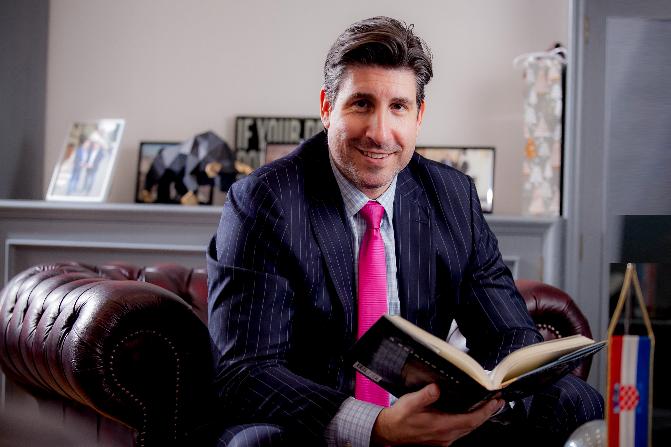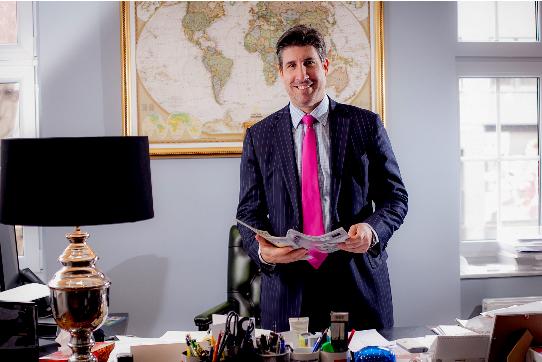Vlahovic Group is indeed the first and largest professional government relations firm in Croatia and the Western Balkans. It was founded with the vision that companies need professionals to conduct their government relations and since then accomplished many highly delicate and important tasks for their clients.

“I have spent time working in Washington as a commercial diplomat so my understanding of the political process comes from an American background, but my time in Brussels and Croatia provided a broader understanding of how there is a great demand for professional lobbying service in the Western Balkans”, says Natko Vlahović, the Founder and Managing Director of Vlahovic Group LLC Government Relations.
Unfortunately, the region is still known mostly for very difficult and nontransparent bureaucracy.
“So far, in our last eight years, VG has conducted projects in almost all of the countries in the region. Naturally, Croatia is our biggest market and I am proud to say that we have advised real corporate giants. We have noticed that even large companies do not pay enough attention to national policies and tend to intervene when it is too late. Starting any business is a challenging task and it requires a 24/7 mentality, but when you add the fact that the political process often has specific rules and tricks, you enter a very complex consulting labyrinth”, says Vlahovic at the beginning of our conversation during which we covered many issues the company dealt during the process of the Croatian EU integration and afterwards.
What about your role as the founder and managing director of Vlahovic Group and also director of the Croatia-EU Business Council. Are these roles complementary?
— I have spent thirteen years around European affairs and EU institutions so the Croatia-EU Business Council was originally a push to help bring EU negotiations closer to private sector interests. We were helping companies navigate quite difficult negotiations between Croatia and the EU. It took us seven years to close all the chapters
and get clearance from all member states. It was a unique political challenge and often I felt almost alone in terms of securing the needed dialogue between the private sector interests and EU institutions. Companies from non-EU member states that started the negotiations should have an active role in the process. The sooner the private sector interests come in, political elites will have a clearer view of what they need to accomplish. The role of Croatia-EU Business Council today is to facilitate events and promote dialogue on specific EU topics. Croatia joined the EU as the 28th member and is still learning how the system works. An important next step to mention is that Croatia will be presiding over the Council of the EU in January 2020. This will be Croatia’s inaugural Council Presidency and Vlahovic Group policy team will play an important role, explaining what is really going on and how to benefit from engaging with the Presidency agenda and priorities. The announced Western Balkans Summit in Q2 of 2020 in Zagreb will be an opportunity for the region to work on its issues with top political leadership from around Europe.

What kind of a team is needed to work in a professional lobbying firm?
— There are two types of lobbyists in this field; those that are former officials and those that are trained professionals with years of experience. I have worked with both on various projects and objectives. Former politicians have the ability to provide access and an insight into the political battlefield. On the other hand, trained and experienced professional operatives are sound and deliver deep analysis valuable for the client. In practice, the fact is that a brand name sells, so having both types of expertise could be most beneficial. It takes years to build a sustainable business, and at the end of the day, only those who constantly generate new business in their portfolio can survive.
What sectors are you most present in? What services do you provide to your clients?
— We have worked for the tech, energy, waste, infrastructure, digital and tourism sectors. In the last two years, tech companies have spent a lot of money on lobbying in the EU and member states, asking for monitoring services, engagement with relevant stakeholders, legislative affairs, procurement issues and arbitration assistance. Professional lobbying business has expended globally and is a thriving industry in every political capital. Sometimes the influencing process can take a long time and results are visible after a year of tedious work. We have noticed that an increasing number of embassies have an interest in stakeholder mapping and monitoring services and in some cases, even hire lobbying firms for outright lobbying to promote their economic and political interests.
In January 2020, Croatia will take over the rotating Presidency of the Council of the EU. Do you see this as an opportunity?
— The Council Presidency is an excellent opportunity for the national government to show the rest of the EU that it is a serious player and broker. Croatia works within the Trio with Romania and Finland. I see it as an opportunity not just for advocates across the EU to advise and assist their clients to navigate a highly structured policy environment, but also for the business sector to provide their perspective on some of the priorities their government should put on the table. With hundreds of Council meetings and working groups, as well as informal gatherings, it will be an amazing experience for all working in the policy-making industry.